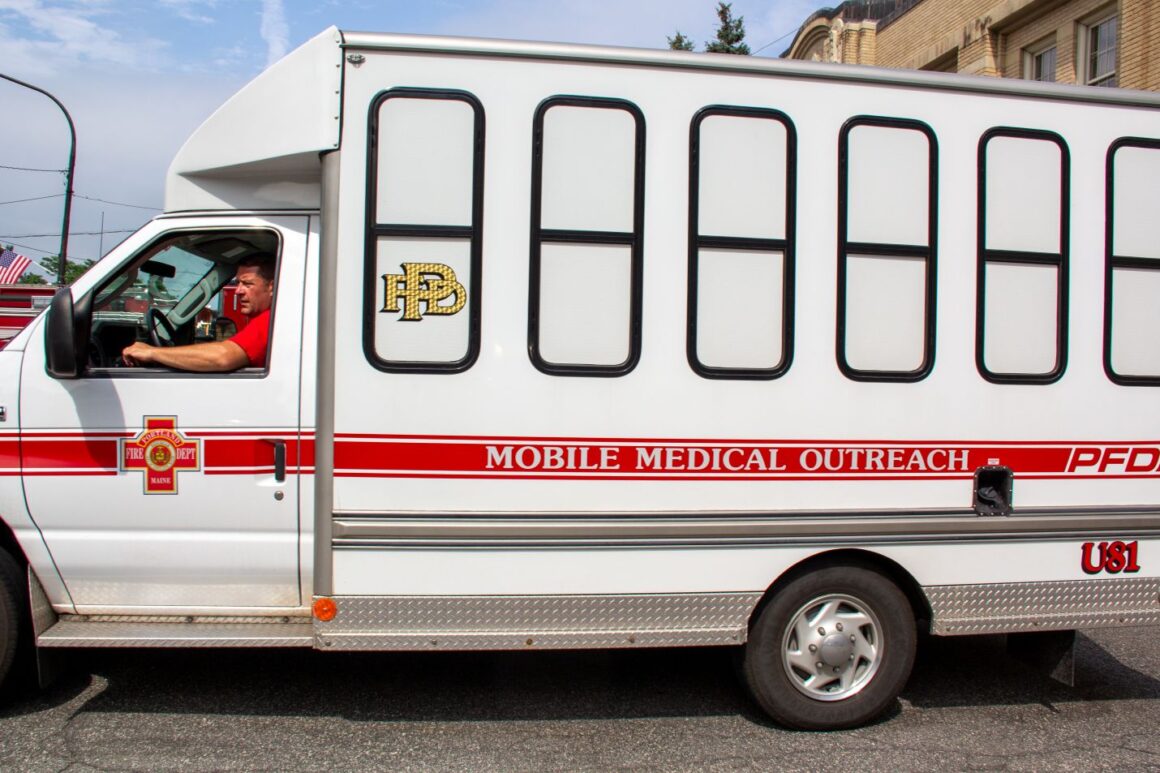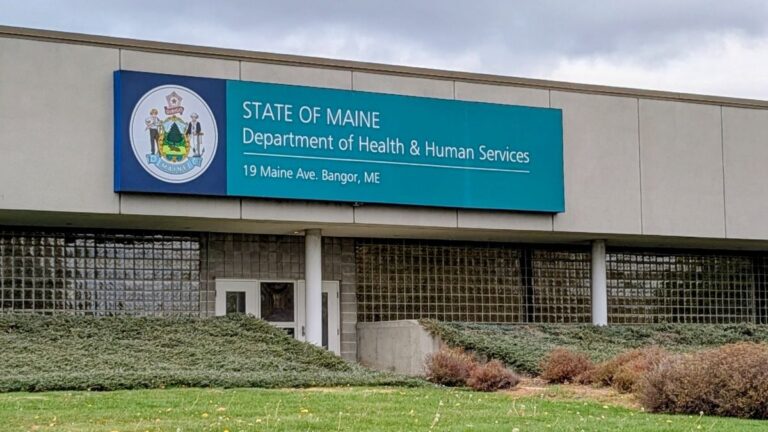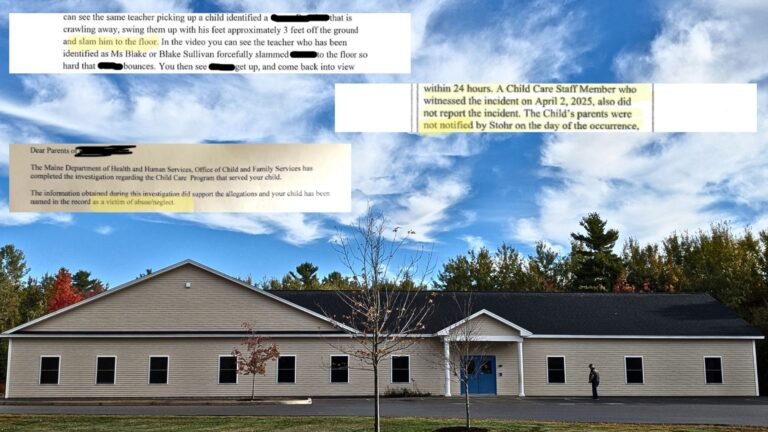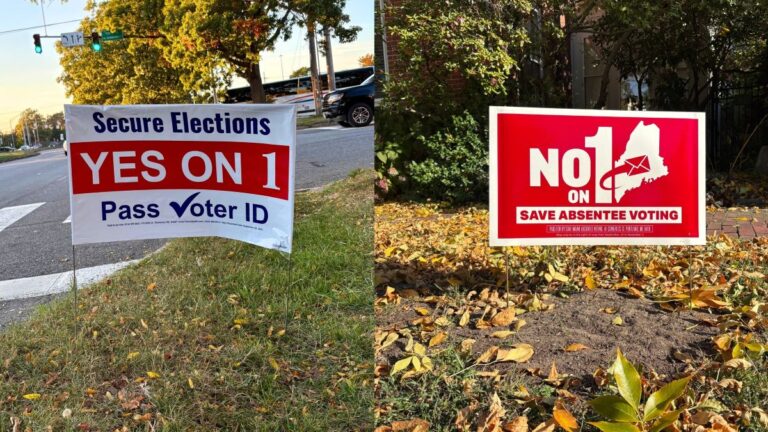One evening in early February 2023, Alane O’Connor sat at home incredibly worried about a patient. A historic cold snap was approaching Maine, and O’Connor, a perinatal addiction medicine specialist, was concerned that this woman’s severe substance use disorder undermined her understanding of the extremely serious situation she was in.
She was unhoused, had refused previous offers to go to a shelter and was pregnant — and going to deliver imminently.
O’Connor, sitting on her couch that night as temperatures dropped dangerously low, said she had no idea how she could find the woman, whom she had seen a few times before. Once, she had agreed to meet O’Connor in front of MaineHealth Maine Medical Center in Portland. Another time, city outreach workers helped O’Connor, a nurse practitioner with a doctorate in nursing practice, locate her.
“I wouldn’t even begin to know where to look for folks,” she said.
O’Connor calls this case the inspiration for Project Lifeline, a partnership between MaineHealth and the City of Portland to deliver care to pregnant and postpartum people who are unhoused and dealing with addiction. O’Connor believes it is the first program of its kind in the state.
In 2021, the latest data available, nine Mainers died from pregnancy-related causes. The Maine panel that reviews maternal mortality determined that substance use disorder contributed to a third of those deaths.
Beyond overdoses, illicit drug use during pregnancy can lead to significant complications, especially for those living on the streets for whom regular access to prenatal care and substance use treatment is significantly lower than their housed counterparts. Hypertension, for example, already a major concern because of the risk of preeclampsia, is exacerbated by stimulants like methamphetamine.
For O’Connor, the medical director of the perinatal addiction medicine program at MaineHealth and for the state’s Maternal Opioid Model, or MaineMOM program, her concerns about these patients’ health and risks are greater than ever before.
Fentanyl, the prevailing opioid found on the streets, is far deadlier than prescription painkillers and even heroin, and its severe withdrawal symptoms make transitioning to a medication for opioid use disorder like buprenorphine challenging.
The potency of the methamphetamine that has flooded the drug supply over the past few years can cause people to experience psychosis and paranoia — and there is no known medication to treat it. Polysubstance use, where people use more than one class of drugs at a time or drugs are cut with multiple types of substances, is the norm nowadays.
While O’Connor was at a loss for how to find the woman back in February 2023, paramedics on Portland Fire’s mobile medical outreach team weren’t. Members of the police and fire departments had seen her multiple times over a couple of days and were working together to ensure she didn’t give birth outside in “absolutely brutal weather conditions,” said Sean Donaghue, Portland Fire’s division chief for emergency medical services.
Members of the city’s emergency services, including the outreach team, were eventually able to get her to a hospital, where she delivered successfully, before the wind chill measured -45 degrees.
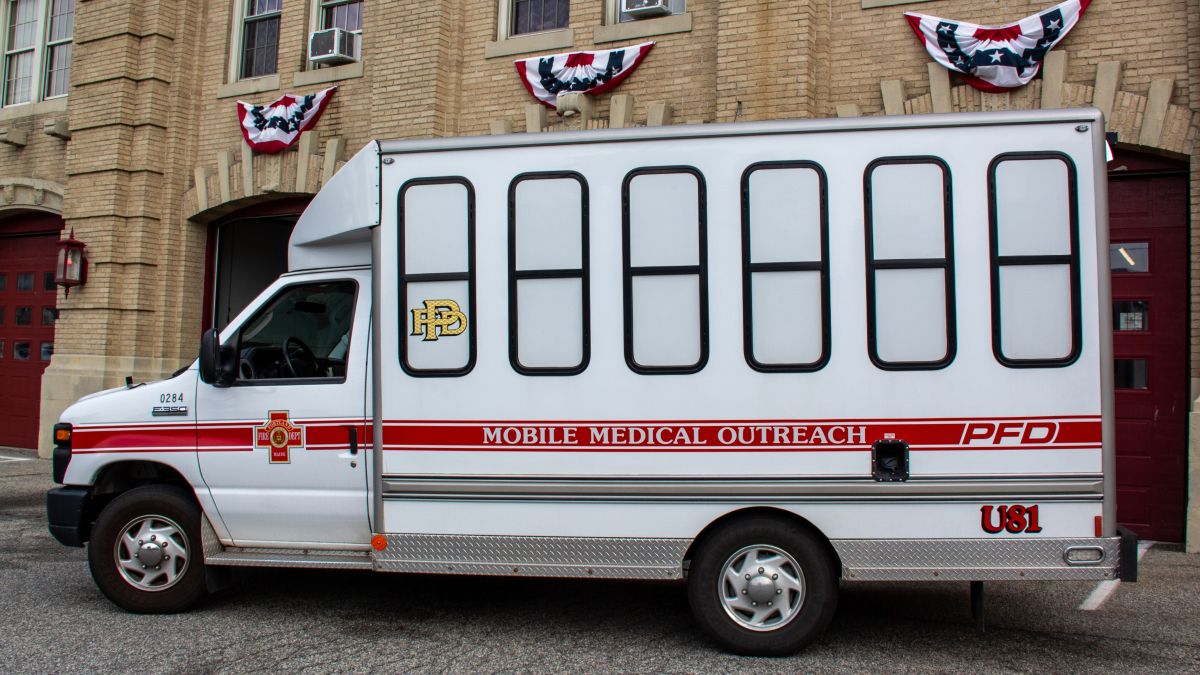
The city started the mobile medical outreach, or MMO, program in 2016 initially as a way to reduce 911 calls for service, said Portland public health director Bridget Rauscher. It’s modeled on street medicine, the practice of meeting people literally where they’re at — on the streets, in encampments, in city parks — to deliver health care. The ultimate goal was to send trained medics out into the community so they could reach people before an overdose occurs, Rauscher said.
Donaghue called the mobile medical outreach program a “non-linear” way of thinking about paramedicine: it uses the framework of Fire and EMS, which people call when they need help in an emergency, to proactively go looking for people.
The February 2023 case, Donaghue said, illustrates how emergency services are “in fact, part of the greater health care system.” The outreach team had the access to and relationship with the woman to get her to a hospital and was able to avoid “potentially two losses of life,” he said.
Had O’Connor known about the outreach team at the time, she said she would have “absolutely have jumped into one of the PFD vehicles” to help find the woman. While the worst-case scenario was avoided, O’Connor vowed to never let a patient get to that point again.
“I’m going to figure out a solution to this problem,” she recalled thinking.
Soon after, a mutual contact at Maine EMS introduced O’Connor to the outreach team at Portland Fire, which led to a partnership between MaineHealth and the city that grew into Project Lifeline. Since then, a few times a month O’Connor joins the outreach team to meet with unhoused pregnant and postpartum people struggling with addiction.
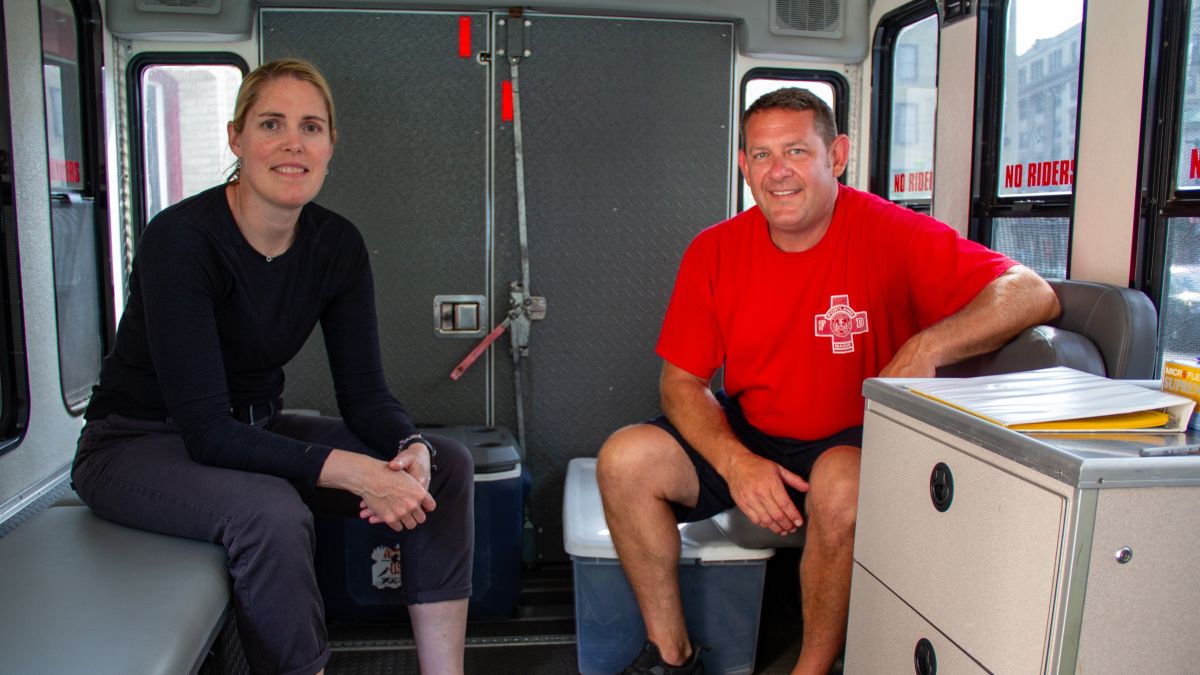
The project is funded through a mix of sources, including MaineCare grants and billable services, federal overdose prevention grants and a grant from the Maine Recovery Council, which oversees half of the state’s opioid settlement funds. While O’Connor said this mix of funding makes it tough to pin down an exact annual operating cost, she estimated the project costs between $50,000 and $100,000 a year to run.
When O’Connor joins the outreach team, which is on the streets 25 hours a week, she usually has a list of people she plans to see, either people she connected with previously or referrals from the outreach team. Some days they’re able to track down every person on the list, other days they find no one; sometimes they meet people in need of medical care they weren’t even looking for. Since the project’s inception, O’Connor estimated she’s worked with about 30 pregnant and postpartum people.
While out with the outreach team, O’Connor can talk to people about substance use treatment or managing prenatal care, including adjusting their medications in real time or putting in a prescription for buprenorphine. The outreach team is limited to working within Portland city boundaries so if someone is no longer staying in Portland, they’ll usually coordinate with the patient days they can come into the city.
“Sometimes it’s managing their substance use disorder well enough to get them to 34 weeks instead of 26 weeks,” O’Connor said. Or treating an infected wound with a $10 antibiotic or giving someone a ride to MaineMed to get surgery for an incomplete miscarriage.
“It’s avoided cost, but you never know what those costs are,” O’Connor said.
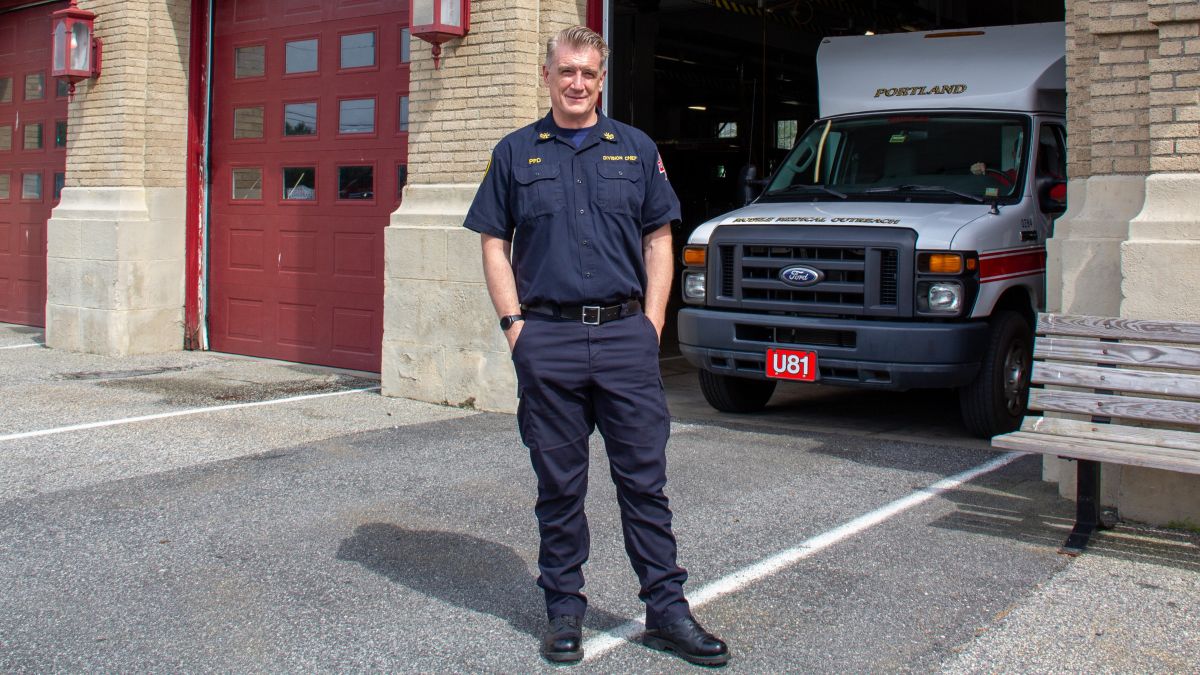
The partnership with MaineHealth means that she can easily call a care coordinator there, who can help sign someone up for MaineCare, book an obstetrician appointment and coordinate transportation, for example. Patients sign a release so that providers at MaineHealth and on the outreach team can share health information with each other. This communication could be as simple as a MaineHealth provider asking the outreach team to remind someone of an appointment or the outreach team staying aware of a person’s treatment progress.
Donaghue calls it “practicing in parallel.”
“We both have our lanes and we do a lot together,” he said. There’s a lot that O’Connor can do that EMS can’t, while EMS, being a 24/7 service, is able to build relationships and gain access to people — like the pregnant woman on the street during the cold snap — in a way that O’Connor can’t on a daily basis.
Most end up seeing O’Connor in her office at MaineHealth’s Comprehensive Addiction Medicine Center on St. John Street, a major achievement for a population that received very little, if any, medical care before connecting with the program. She said many have been able to find housing or inpatient treatment options through the MaineMOM program that have allowed them to retain custody of their child after birth.
For others, O’Connor said being able to provide postnatal addiction care in a setting other than an obstetrician’s office –– a tough place to be for a parent who has lost custody of their child –– helps keep people at high risk of returning to use engaged in services.
“We are 100 percent reaching patients who would not otherwise be reached.”


